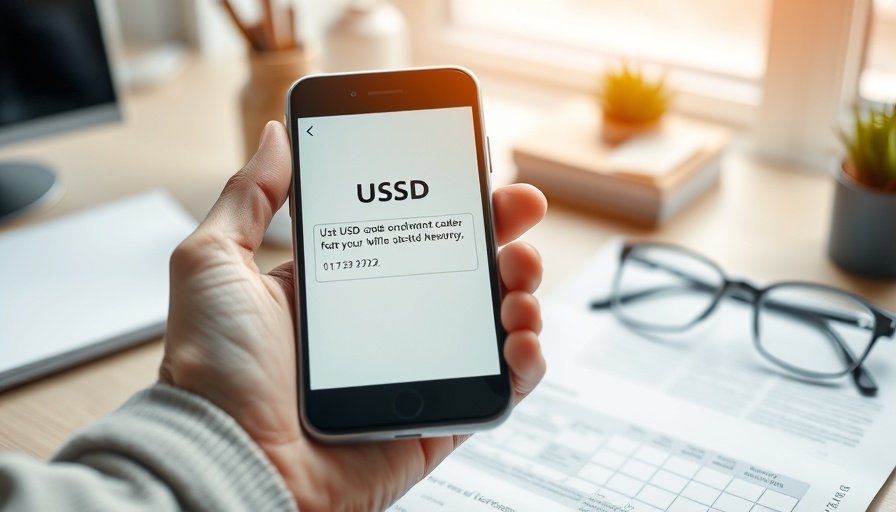
Understanding the Impact of USSD Charges on Nigerians
Starting this June, a transformative guideline from the Nigerian Communications Commission (NCC) will change the way consumers pay for Unstructured Supplementary Service Data (USSD) services. Previously charged to bank accounts, this fee will now be deducted directly from mobile airtime balances. This significant shift marks a pivotal moment in a lengthy dispute between Nigerian telecom operators and banks, highlighting the complex financial landscape of digital services in Nigeria.
The Financial Landscape: A History of Disputes
The journey towards this new billing model has been fraught with tension. For years, telecom operators accused banks of failing to adequately manage USSD fees, resulting in a staggering accumulation of debt—over ₦160 billion—or about $106.67 million—in unpaid fees. The NCC's latest decision follows a series of failed attempts at establishing a clear revenue-sharing model between banks and telecom companies, leading to increasing frustration among service providers.
Direct Billing: What It Means for Consumers
At the heart of the NCC's directive is a move towards aligning consumer interests with service providers. For the first time, users will need to authorize each USSD transaction, significantly enhancing transparency in the billing process. This means that the ₦6.98 fee for a USSD session will be deducted from airtime only after consumer consent is provided, allowing telecom operators to maintain direct control over fee collection.
Operational Advantages of the New USSD Model
This new model offers multiple operational benefits for telecom operators. By shifting to direct airtime billing, companies can eliminate dependency on banks for fee settlements, thereby streamlining revenue collection and possibly reducing overhead costs related to debt recovery. Moreover, it may improve user experience by ensuring that charges are directly linked to the airtime used, making it easier for subscribers to understand their expenses.
The Customers' Reaction: Concerns and Expectations
The implementation of these changes has sparked mixed feelings among consumers. Some see the direct billing model as beneficial, favoring the increased transparency and control over charges. However, there are valid concerns regarding whether this system could lead to unexpected airtime deductions, especially among less tech-savvy users. As the rollout approaches, telecom companies must ensure that customers are adequately informed about the new processes to avoid confusion or frustration.
Future Predictions: Sustainability of the New Model
While the new USSD billing method aims to resolve long-standing financial issues, its long-term success will hinge on several factors. First, the level of consumer consent and understanding will play a critical role in its acceptance. If customers do not fully engage with the new consent process, issues of compliance could arise, impacting revenue growth for telecom operators.
Furthermore, it will be crucial for the NCC to monitor and ensure a seamless transition to this new model, continually addressing any concerns raised by users or service providers. Only through collaborative oversight can the potential pitfalls of this innovative billing technique be mitigated, allowing all stakeholders to benefit.
Concluding Thoughts: Why This Shift Matters
The transition to deducting USSD charges directly from airtime balances represents a significant shift in the Nigerian telecom landscape. By prioritizing consumer consent and creating a more transparent billing process, it could lay the groundwork for an improved relationship between users and service providers. As consumers prepare for this change, it remains vital for the industry to communicate openly and thoughtfully to foster trust and confidence among users.
 Add Row
Add Row  Add
Add 




 Add Row
Add Row  Add
Add 
Write A Comment